When Philip Gwynne Jones packed up his life in the UK and moved to Venice in 2012, it was meant to be a one-year escape from a financial crisis that threatened his IT job at a major bank.
Thirteen years later, he’s still there – and says there’s no chance he’ll return to the place he once called home.
Philip, 58 and his wife, Caroline, both worked as computer programmers at one of Scotland’s largest banks during the aftermath of the 2008 financial crisis.
As the financial sector braced itself for tens of thousands of redundancies, around 30,000 to 40,000 according to the Swansea-born writer, the couple began exploring ways of reinventing their careers as ‘middle-aged’ IT specialists.
The turning point for Philip came from a conversation with a stranger in the local pub.
He became inspired by the punter’s plan to teach English abroad, recalling: ‘He was moving to Seville to teach English as a foreign language to Spanish people. He said you don’t earn very much money, but it’s a job.’
Reflecting on his former role as a computer programmer, Philip admitted: ‘I hated the job, and I thought the stress of it would kill me. I had lovely co-workers. I was feeling burned out and tired and hadn’t enjoyed the job for for years.’
But his life was about to change: within months, Philip and Caroline accepted a ‘modest’ redundancy payout, sold their Edinburgh flat to their neighbours, left their belongings with a relative and enrolled in a language school and teacher training programme in Venice.
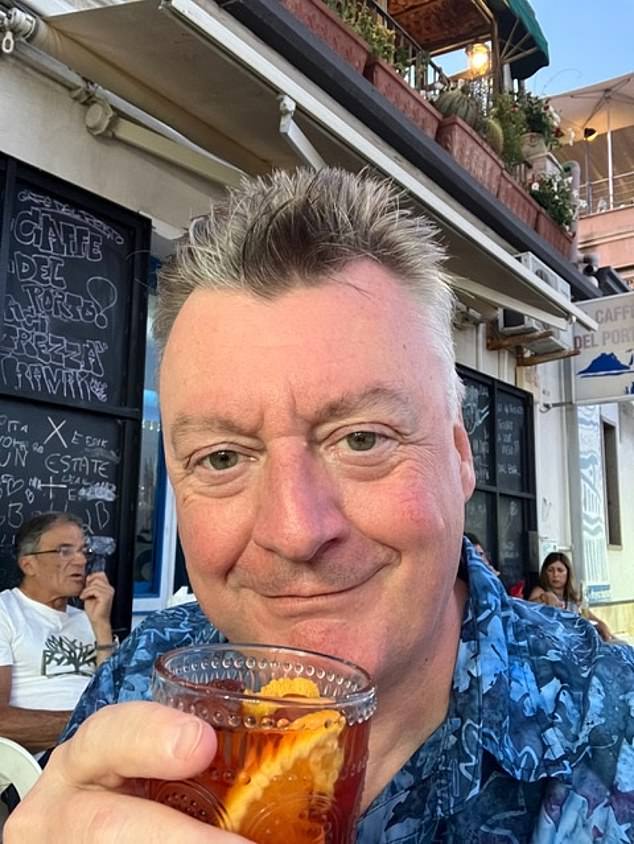
In 2012, former IT professional Philip Gwynne Jones (pictured) packed up his life and moved to Venice to escape a financial crisis that threatened his job – 13 years later, he’s still there.
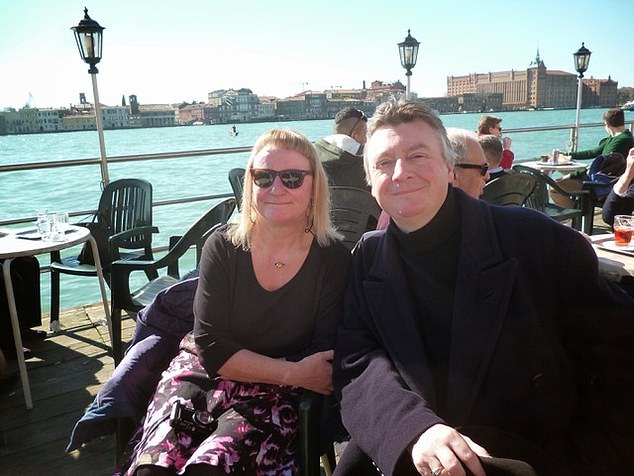
Philip Gwynne Jones, 58 and his wife, Caroline, both worked as computer programmers at one of Scotland’s largest banks during the aftermath of the 2008 financial crisis
The couple’s first year in the City of Canals was far from a dream: the pair experienced long hours, low pay and ‘difficulty in finding well paid work.’
But slowly, things changed. With experience under their belts, they were able to secure positions in Italy’s state education system – jobs that offered better pay and regular hours.
For Philip, the move to teaching also sparked a creative awakening. He explained: ‘I taught English for 10 years, and I really enjoyed it, because it was different every day, and I just had so much fun doing it, and I met so many nice people doing it.
‘Then during COVID, of course, everything went online. I found it more stressful than being in class.
‘When the opportunity came to renew my contract with school for another year, I thought, I think I can step back from it now and I can just concentrate the writing.’
Philip’s debut novel was published when he was 50, and he’s since gone on to release a number of crime thrillers with Venice at their heart.
His latest work, the Magus of Sicily, is a ‘concoction of crime and culture’ inspired by his monthly trips to the southern Italian island.
He said: ‘[Sicily] is right at the other end of the country. Basically it’s on the other side of the diagonal. It’s probably a 90 minute to two hour flight to Catania, which is where we go.
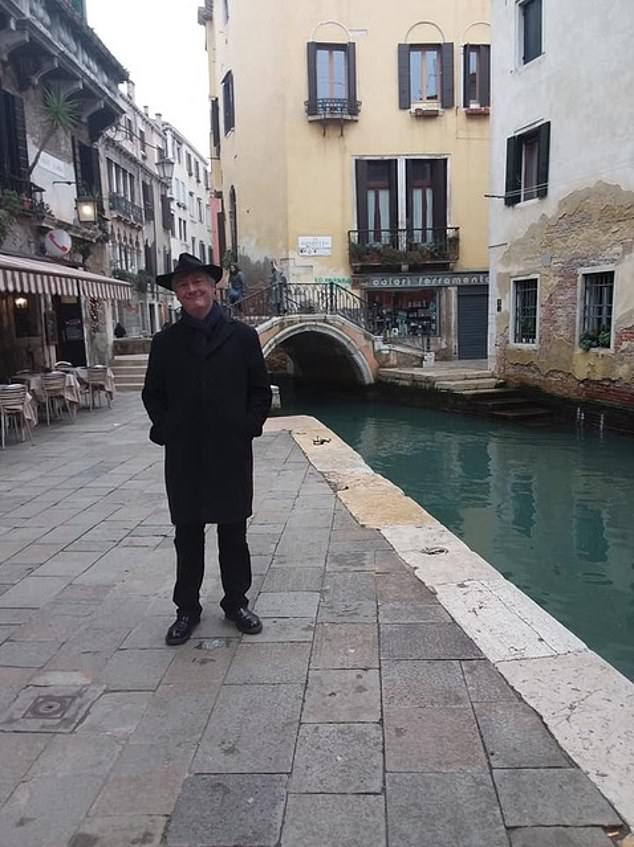
The couple’s first year in the City of Canals was far from a dream: the pair experienced long hours, low pay and ‘difficulty in finding well paid work’
‘Catania is right under the volcano – you gotta have a lot of confidence to want to live there.’
‘Sicily is so beautiful and so fascinating, historically as well as physically. It’s slightly bigger than Wales, but it feels so different to the rest of Italy.’
Since their move, the couple have embraced the language, too, after completing three months of intensive Italian lessons.
Philip explained: ‘You can read the newspapers, you can listen to the radio, you can watch Italian TV. It’s immensely useful to have. It’s a good thing to have.
‘In Venice, if they pick up on your accent – and they will pick up on your accent, because I’m never going to sound Venetian – we have these strange conversations where they want to practice in English and I want to use my Italian, so we’re knocking it back and forth until one side concedes.’
One of the most significant steps to settling in, he says, was joining a local choir. Philip said: ‘I was singing in a choir in the UK, and that was something I really missed, so I joined the Venetian choir, and immediately that gave me a circle of friends.’
The couple have also found friendships among both Italians and fellow expats. And despite the distance, technology has made it easy to stay in touch with loved ones back home.
Asked to compare life in the UK and Italy, Philip doesn’t hesitate – and he’s all too willing to share aspects of his old life he doesn’t miss.
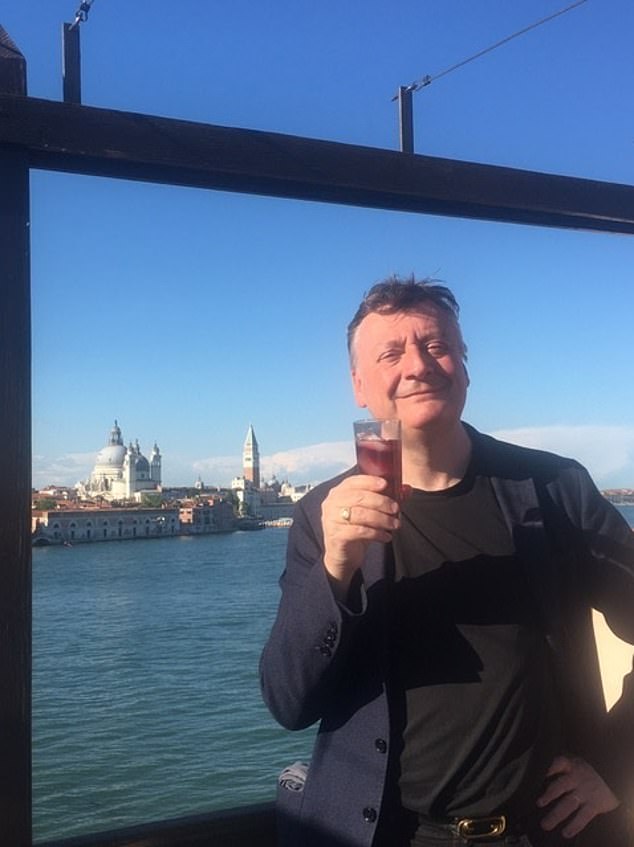
But slowly, things changed. With experience under their belts, they were able to secure positions in Italy’s state education system – jobs that offered better pay and regular hours
He said: ‘Whenever I go back to the UK and I fly to Bristol, and I’ll go drive to Pembroke, which is where my mum is at the moment, I tell you what I do not miss.
‘I will not miss that drive along the M4 because it’s a boring journey. For the first two hours – it’s only really when you pass Carmarthen there’s any sort of scenery at all – you’re either just sitting in traffic, or it’s a dull and boring drive.
‘Now, actually, driving is one thing I really do not miss. I don’t particularly like it because, of course, I’m in Venice, there are no cars, which is perfect for me.’
While Venice has its downsides – crowds in the summer, along with high rent – Philip says it’s no more expensive than Edinburgh, and many essential foods, such as olive oil and fish, cost less.
He added: ‘The cost of wine is substantially less. There’s a little shop around the corner where you basically take a plastic bottle and they fill it up for you. I’m getting a litre and a half of Prosecco for about four euros, which is absurd.’
He especially praises fregola, a Sardinian baked pasta rarely seen in UK supermarkets, adding: ‘It’s one of my favorite things to cook with, because it’s almost impossible to overcook them. It’s it’s a very forgiving type of pasta.
His advice to anyone considering the same move? Philip said: ‘Take all the time you can to plan it properly.
‘Do go there with the intention of learning the language or get as much of it nailed down as you can beforehand, because it will make your experience easier and it will make it richer.
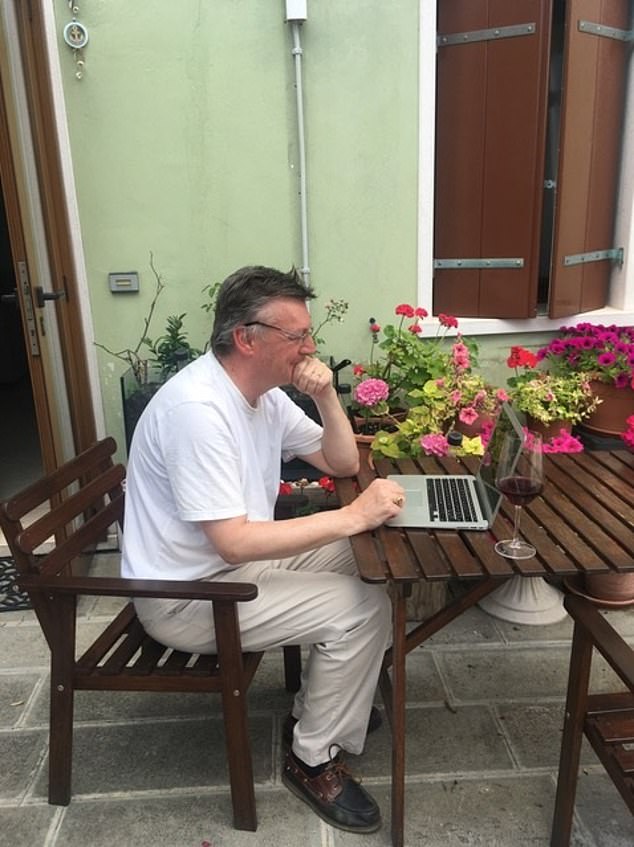
Philip’s debut novel was published when he was 50, and he’s since gone on to release a number of crime thrillers with Venice at their heart
‘I think there will be days along the way where you think, oh my god, what have we done? But those days will pass if you invest in it properly. It’s changed my life. It changed our lives. I’m very grateful to Italy into Venice for giving us this opportunity.’
Despite the regular visits back to ‘lovely’ Wales to care for his mother, Philip says returning to the UK permanently isn’t on the table – and he has no plans to change that anytime soon.
He said: ‘It’s hard to imagine now, because we’ve invested so much in this. I can imagine maybe moving somewhere else in Italy, but moving back to the UK, it would involve giving up a lot. I don’t imagine us doing that.’
‘I have no regrets about moving to Venice. It was the best thing we ever did.’












